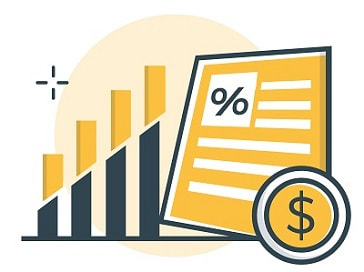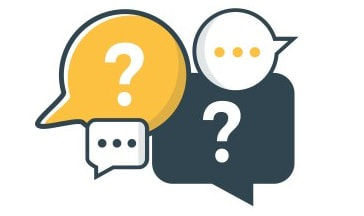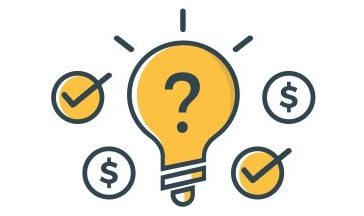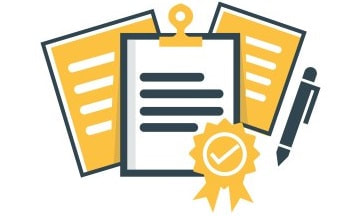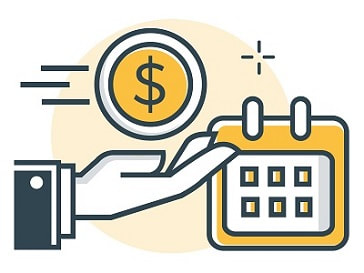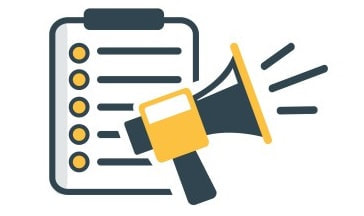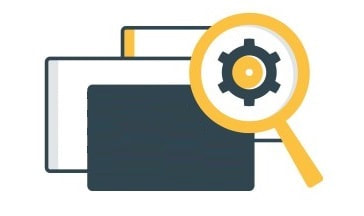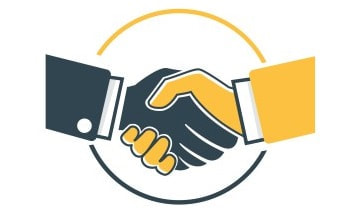Bad Credit Personal Loans and Alternatives
We compare bad credit loans to highlight the best offers and alternatives, without negatively affecting your credit score and getting you into problem debt
Updated 22 July 2024
Important: Please do not rush reading this guide. We know you have bad credit and that a fast loan is your focus right now; our guide helps you find the best offer while minimising or eliminating repayment. We have put it together carefully for your benefit. Spending 5-10 minutes reading will help you make a financially sensible decision.
Top tip: Before applying for a bad credit loan, we strongly suggest contacting Work and Income to see if you qualify for Hardship Assistance (to cover urgent costs and living expense assistance). This support is available to any New Zealand citizen or resident who needs urgent money. You do not need to be receiving a benefit to be eligible.
Our Guide to Bad Credit Loans
Borrowing with bad credit is almost certainly going to be expensive when it comes to repayments. Our guide explains all the options available to anyone with bad credit in an effort to prevent creating a worse financial situation. Few companies want to lend to anyone with bad credit because of the risk of not being repaid. This means that what’s available tends to be high-interest and can cause more problems later on.
If this is you - don't panic. There are a number of options for a loan. Our guide evaluates Work and Income advances and emergency assistance, payday loans, borrowing from friends, low-cost loans and more. We cover:
Important: Please do not rush reading this guide. We know you have bad credit and that a fast loan is your focus right now; our guide helps you find the best offer while minimising or eliminating repayment. We have put it together carefully for your benefit. Spending 5-10 minutes reading will help you make a financially sensible decision.
Top tip: Before applying for a bad credit loan, we strongly suggest contacting Work and Income to see if you qualify for Hardship Assistance (to cover urgent costs and living expense assistance). This support is available to any New Zealand citizen or resident who needs urgent money. You do not need to be receiving a benefit to be eligible.
Our Guide to Bad Credit Loans
Borrowing with bad credit is almost certainly going to be expensive when it comes to repayments. Our guide explains all the options available to anyone with bad credit in an effort to prevent creating a worse financial situation. Few companies want to lend to anyone with bad credit because of the risk of not being repaid. This means that what’s available tends to be high-interest and can cause more problems later on.
If this is you - don't panic. There are a number of options for a loan. Our guide evaluates Work and Income advances and emergency assistance, payday loans, borrowing from friends, low-cost loans and more. We cover:
- Frequently Asked Questions
- Pros and Cons of Taking a Bad Credit Loan
- How to Apply for a Bad Credit Loan – Four Things to Consider
- Repaying a Bad Credit Loan – What You Need to Know
- 10 Bad Credit Loan Options (and What to Watch Out For)
- Understanding Your Credit History
- Conclusion: Bad Credit Loans and Making the Best Decision
Know this first:
- Bad credit loans are available for anyone but usually always come with very high interest rates, upfront loan application fees, ongoing 'management' fees and/or default fees.
- The New Zealand government changed the law in May 2020, meaning interest and fees are capped at 100% of the loan, but the interest rates charged are still high. This benefits anyone considering a bad credit loan given the history of high interest rates before the law change.
- Payday loans and truck loans are best avoided – they usually make a debt issue even worse.
- Before you apply for a bad credit loan, be aware that Work and Income offers a number of special assistance loans and grants. Our hardship, living costs and emergency assistance grants guide should be considered first as it walks you through everything you need to know about what's available and how to apply.
- We strongly suggest seeking the assistance of a budget advisor who can help restore your credit history by assisting your with money management. For more information, visit MoneyTalks, Sorted.org.nz and the NZ Government.
Bad Credit Loans - Frequently Asked Questions
If you have bad credit, your ability to borrow can be frustrating. To make sure you're informed, our FAQs answer popular misconceptions about lending options for anyone who has a credit history that disadvantages them.
What is bad credit?
Bad credit in New Zealand is quite common, with unpaid phone bills being the most common cause. Bad credit arises when you have a record of missing payments for loans, credit cards, phone plans or car finance, among other things.
When you apply for something that relies on your making repayments later, the company you’re dealing with will run a ‘credit check’. This is to determine whether you’re likely to meet your side of the agreement and make repayments. Anyone with bad credit will either be refused outright or charged a higher interest rate or fee.
Most people have bad credit due to one (or more) of the following:
When you apply for something that relies on your making repayments later, the company you’re dealing with will run a ‘credit check’. This is to determine whether you’re likely to meet your side of the agreement and make repayments. Anyone with bad credit will either be refused outright or charged a higher interest rate or fee.
Most people have bad credit due to one (or more) of the following:
- Defaulting on payments
- A history of making late payments
- Bankruptcy
Why is having bad credit a problem for loans?
Most lenders don’t like taking risks. If you have a bad credit history, then you’ll be seen as ‘high risk’, and your loan application will, most likely, be declined. Bad credit applications typically get rejected for mortgages, personal loans, credit cards, car finance and even phone plans. The companies take the view that the risk isn’t worth the potential profit.
Can I get a bad credit loan if I have bad credit and am currently unemployed?
Yes – but at a higher than normal interest rate; 'good' interest rates (the offers you see advertised for 5.99% p.a. or at least under 10% p.a.) are usually only available to someone with a regular income and good credit score. As part of the application process for a bad credit loan, the lender asks for payslips or proof of income. If you’re unemployed, then you can still apply for a loan, as bad credit lenders consider a range of applicants. Such loans, however, will almost certainly have a high-interest rate which gets dangerous if you miss a payment.
How can I get a bad credit loan?
If you have had a few loan application rejections, bad credit is likely to be the reason. New Zealand does, however, have a thriving ‘alternative lender’ market, where specialist companies offer bad credit loans to help with debt consolidation and emergencies. These loans will, however, have higher interest rates and may come with additional fees.
Important: There’s no guarantee that an alternative lender will approve your application; our guide compares the ‘least worst’ providers who offer loans for those with a bad credit history.
Important: There’s no guarantee that an alternative lender will approve your application; our guide compares the ‘least worst’ providers who offer loans for those with a bad credit history.
I’ve never heard of the companies offering "bad credit loans" – should I trust them?
Almost every bank will find a reason not to loan to anyone with bad credit. They do this because banks don't like to take risks. Companies that do lend to people with bad credit include the likes of Cash Converters, Instant Finance and other high-interest, high-fee lenders. Because they don’t rely on their reputation like banks do, it’s essential that you know exactly what you're getting yourself into in terms of the interest rate, repayment terms and fees.
How much can I borrow using a bad credit loan?
"Bad credit loans" operate in a very similar way to "payday loans" – they are short-term (i.e. less than two years), high-interest, have a number of upfront and ongoing fees, and become even more costly if you miss a payment. You will usually be able to borrow up to around $2,000 or $3,000, but how much depends on the lender's criteria, what you can afford to repay and your credit history.
Are there alternatives to taking out a bad credit loan?
Yes - there are many. Our 10 Bad Credit Loan Options covers these in detail. No matter what you decide, it’s a good idea to make an appointment with a Budget Advisor who offer free assistance to get your finances on track while you’re out of work. Budget Advisors may be able to provide details on low-interest (or even 0% interest) loans that are offered by local charities. Whatever your situation, a budget advisor will provide ongoing support.
Why have I have credit applications declined in the past?
Lenders don’t like taking risks, and they look at many factors before granting a loan. The reason is usually bad credit, but there are other reasons. Some of these reasons include:
- A bad credit history – if you’ve gone through financial difficulties, instances of missing repayments and/or paying late will be recorded on your file. While the reasons may not be your fault, credit file’s don’t differentiate. Their purpose is to inform lenders about how much of a risk you may be. If there are too many black marks, your application will, in most cases, be rejected.
- You already have too many loans outstanding – lenders don’t like to give money to people who already have debts to repay. If you’ve already got a personal loan, car finance and a few store cards and struggle to keep on top of repayments, this will usually be seen as a risk by a lender who will decline your application.
- Your income – loans are assessed on affordability; if you earn $40,000 a year but want a $20,000 car loan, it’s unlikely this will be deemed affordable, so your application will be declined.
- Your employment history – if you are in and out of work frequently, or are unemployed for the long-term, this will be seen as higher risk.
- What assets you have – if you’re applying for a secured loan, the lender will assess the value of the assets you own (i.e. car or home) and whether they are sufficient to cover the loan should you fail to repay. If you don’t have adequate assets, your application will likely be rejected.
Pros and Cons of Taking a Bad Credit Loan
Because bad credit loans will almost certainly have higher interest and more aggressive terms, you must understand what is involved and evaluate all of your options. There are many alternatives to a bad credit loan, which we outline later on in our 10 Bad Credit Loan Options section.
Pros
Cons
Pros
- You can access money – if you need some money and have no other option; bad credit loans will usually transfer the money to you on the same day you’re approved.
- It’s cheaper than payday lenders – alternative loans will charge above-market interest rates, but they won’t be as high as payday lending. They are easier to repay, and you won’t be crippled with fees.
- A bad credit loan can help improve your credit score – if you manage to repay the loan instalments on time, your credit history will report this. This will help you get a better loan deal or credit product later on.
Cons
- You’ll need to make monthly repayments – if you don’t, you’ll almost certainly have further black marks added to your credit history which will make future borrowing more difficult.
- High interest rates – because you’re a higher risk, lenders charge you more to account for this. This means your total interest costs will be higher than taking a personal loan from a traditional lender.
- Higher fees – bad credit loan companies often charge big fees for missing a repayment, as well as ongoing loan 'management' fees and upfront fees. To make sure you understand what your obligations are, ask for a schedule of fees. It’s worth checking the terms and conditions for any penalties like late repayment fees and returned payment fees.
Table 1: Repayment cost for a $2,000 loan (repaid over two years) based on five different credit histories (all calculations exclude loan application fees)
The table below is clear how credit ratings make a big difference in the cost of a loan. For example, someone with an "average" credit rating may pay $562 interest costs, whereas someone with a "bad" credit rating will pay $5,461 interest costs (if the interest rate was 180%) for the same loan. As this table depicts, better credit means lower borrowing costs.
Credit Rating |
Interest Rate |
Monthly Repayment |
Total Interest Cost |
Total Loan Cost |
Excellent |
8% |
$90 |
$171 |
$2,171 |
Good |
12% |
$94 |
$260 |
$2,260 |
Average |
25% |
$107 |
$562 |
$2,562 |
Poor |
75% |
$164 |
$1,913 |
$3,913 |
Bad |
180% |
$311 |
$5,461 |
$5,461 |
How to Apply for a Bad Credit Loan – Four Things to Consider
The best approach is not to borrow more than you need (as interest costs and repayments will be high) and make sure you will have the money to keep up with repayments. While everyone’s financial situation is unique, the following should be considered:
If you’re comfortable with proceeding, there are a few things you will need to disclose to the lender:
- How much you can afford to pay back each month – our loan affordability calculator shows how much you could borrow based on how much you think you can repay
- How much you need to borrow – don’t overstate what you need given the high costs of interest, but at the same time, make sure you borrow enough for what you need so you’re not short of money and need another loan shortly after
- The interest rate and fees – make sure you understand the interest rate, penalty interest rate if you’re late making repayments, all fees and the term (i.e. how many months) of the loan.
- Do you need the loan – if the money is spent on a ‘want’ rather than a ‘need’, the cost of interest and related fees make bad credit loans very expensive. It will often be better to save up and pay for what you want in cash.
If you’re comfortable with proceeding, there are a few things you will need to disclose to the lender:
- Your current address in New Zealand
- An email address, contact number and employer name (if applicable)
- Your total annual income
- Your general expenses
Repaying a Bad Credit Loan – What You Need to Know
The most important rule of taking out a bad credit loan (or any loan) is that you make sure to always make the repayments on time, whenever they are due, until the balance is paid off. Your loan will specify how the long the repayment period is (usually one to five years), the interest rate, the fees (for missing a payment), penalty interest rates (if you’re late repaying) and, most importantly, the weekly or monthly repayment.
Know this: What you repay isn’t just the amount you’ve borrowed, but it’s also the interest costs. The worse your credit, the higher the interest rate, which means the more you’ll repay. To protect your credit history, make sure you know exactly when the loan repayments are due, and you never miss the repayment. Doing so will almost certainly negatively impact your credit history, meaning taking out another loan later could be even more expensive.
Know this: What you repay isn’t just the amount you’ve borrowed, but it’s also the interest costs. The worse your credit, the higher the interest rate, which means the more you’ll repay. To protect your credit history, make sure you know exactly when the loan repayments are due, and you never miss the repayment. Doing so will almost certainly negatively impact your credit history, meaning taking out another loan later could be even more expensive.
How do I make loan repayments?
You have many options for making the repayment – the most crucial point is that the payment must be received on (or before) it’s due to avoid extra costs. Popular ways to service a bad credit loan include:
Of the three options, direct debits are the most sensible as then the lender has the responsibility to take the money. However, you’ll need to have enough money available. If you don’t, your bank will likely charge a dishonour fee, and your lender will charge a failed payment fee (and penalty interest). Your credit history will also be negatively affected.
- Direct debit (your lender will set this up and take money from your bank account when a repayment is due)
- Automatic payment (you’ll set this up using online banking, which will cover a fixed amount, which you can adjust at any time)
- Making a manual payment (you transfer money to the lender to cover the repayment cost)
Of the three options, direct debits are the most sensible as then the lender has the responsibility to take the money. However, you’ll need to have enough money available. If you don’t, your bank will likely charge a dishonour fee, and your lender will charge a failed payment fee (and penalty interest). Your credit history will also be negatively affected.
10 Bad Credit Loan Options (and What to Watch Out For)
You don't need to rush into taking out a bad credit loan - there are many alternatives, and we explain them below in detail.
Important: Please do not rush reading this guide. We know a quick loan is your focus right now; this guide contains many options that can help you. We have put it together carefully for your benefit. Spending 5-10 minutes reading will help you make a sensible decision.
Important: Please do not rush reading this guide. We know a quick loan is your focus right now; this guide contains many options that can help you. We have put it together carefully for your benefit. Spending 5-10 minutes reading will help you make a sensible decision.
Hardship Assistance - Urgent Costs and Living Expense Assistance (from Work and Income)Hardship Assistance is the term Work and Income use to describe emergency grants and one-off payments. There are two main types of payment:
The benefits of Work and Income assistance include no interest rate being charged, no loan fees, money can be advanced as a grant (i.e. not a loan) and you can pay back money without interest. More details: Visit our dedicated Hardship Assistance guide and our Work and Income tips guide for maximising the chances of being approved. |
High-Interest and Payday Loans (a high risk, high cost option)High-Interest and Payday lenders are everywhere – on the TV, online, advertising on buses and newspapers. They work in a similar way - high fees, high interest and high penalties for being late on a repayment.
High-Interest lenders traditionally let you borrow money from six months to five years; Payday lenders usually let you borrow a fixed sum for up to ten weeks, but this is flexible. It is however expensive, even if your repayments end up being a maximum of 100% what you borrow. For example, if you borrow $500 for urgent car repairs, you will have to pay back $1,000 after a few months given the high-interest rates. Managing daily expenses with either a high-interest loan or payday loan isn’t easy and can quickly become unaffordable. More details: Check out our Payday Loans Review |
Accessing KiwiSaver (a low risk option, but you'll need to have a balance available)If you have a KiwiSaver balance, you may be able to access it for free. You will need to prove that you cannot meet your 'minimum living expenses', for example basic food and grocery items, and accommodation costs (including rent, mortgage repayments, interest etc), among other expenses.
Best of all, you won't need to take a loan and the money comes in a matter of weeks once approved. You'll need to submit a hardship application, and supply the required evidence. More details: KiwiSaver hardship application |
Secured and guarantor loans (a medium risk, low cost option)Lenders don’t see the money you receive from Work and Income as ‘income’, but they will be more likely to offer loans if you have security or a guarantor (someone who will repay the loan if you don’t). Such loans are risky – if you pledge your security (be it a car, home or something else), failure to repay the loan means the lender will own what you pledged. If you’ve asked someone to guarantee a loan (usually a parent, friend or sibling), this can cause a whole lot of trouble if and when you miss a payment.
More details: Secured loans |
Credit unions (a low risk, low cost option)New Zealand has many credit unions – First Credit Union, NZCU Baywide and NZCU South are some examples. Credit unions charge lower interest rates payday lenders and may be able to help. They can also offer repayment plans and more flexible loans.
Read our reviews here: First Credit Union, NZCU Baywide and NZCU South |
Talk to your bank (a low risk, low cost option)Banks have some responsibility to help anyone struggling financially. If you owe money on credit cards or personal loans, ask about a hardship application. A hardship application asks your bank to help you work out a more flexible repayment plan.
|
Use a credit card (a low risk, medium cost option)If you already have a credit card and you have still not maxed it out, credit card debt is very likely to be cheaper than taking out a new loan. You’ll have to meet the minimum repayments (find out what your bank charges here) – it will either be 2%, 3% or 5% of the balance each month).
It’s still possible to apply for a credit card if you have bad credit – banks assess credit card applications on current income and debt levels, so you could be eligible. More details: Visit our low-interest credit cards comparison |
Free and discounted loan providers if you are low income or unemployed (low risk, low cost)There are a number of incredibly helpful community lenders who offer fee-free or low-interest loans to anyone with a low income. We list these below:
1. Good Shepherd New Zealand is a non-government, not for profit organisation, working in partnership with the BNZ, Kiwibank and three community providers - Aviva Families, The Salvation Army, and Vaka Tautua. It offers fee-free loans to people with limited incomes; schemes include no-interest loans and the StepUP loans (with an interest rate of 6.99% p.a.). Website: www.goodshepherd.org.nz. Available: Nationwide 2. The Nga Tangata Microfinance Trust offers Asset Building and Debt Relief loans to help ease the burden of excessive debt. The debt relief loans are to a maximum of $3,000, with capital provided by KiwiBank. The applicant must pay back the loan in full within two years, and they must have been working with a budget advisor for at least six months. Website: www.ngatangatamicrofinance.org.nz Location: Nationwide Brochure: Download here |
Borrowing from friends and family (medium risk, low cost)Depending on your family situation, this can be an option to get a helping hand while you prioritise other bills and improve your financial position. It's not without its risks however - if you can't repay, you can lose friends and upset people. But, for many people, it works just fine. How much to ask for and who to ask is something that needs a bit of consideration.
More details: Our guide to lending money to friends and family members is written the view of the lender (i.e. person you ask for money), but it has some very useful information. |
Loans from door sellers and trucks (a high risk, high cost option)Anyone who offers you a loan on your doorstep is likely to be trouble. It sounds good – a lump sum and a repayment-free period, but the costs quickly get out of control. The interest rates and fees will be high, and the lender does not have your best interests at heart. Worst still, someone will visit your home every week or so to collect payment. It’s ugly and can very stressful if you struggle to make the repayments.
|
Understanding your credit history – and challenging what’s not right
The best way to understand if you have bad credit is to check your personal history. There are four options available, and all of them are free. We'd suggest applying with Credit Simple for its ease of use, followed by Equifax given the number of lenders who use it. If you notice anything that looks unusual, raise it urgently with the credit reference agency and follow it up until it's cleared and/or resolved.
How to Apply for a Credit Report - Three Options:
Important: By applying for a credit report, you can isolate instances of bad credit, and either challenge them or avoid repeating them in the future.
How to Apply for a Credit Report - Three Options:
- Equifax - the credit reference agency used by almost every major bank, Equifax offers a free credit report (20 working days) or an express credit report (delivered in 5 working days or less). It's also known as "MyCreditFile.co.nz" and you can visit the Equifax website to apply.
- illion (formerly Dun & Bradstreet) - the second most popular credit reference agency, illion (formerly Dun & Bradstreet) offers a range of credit report services, with a fast-track credit report (3 days delivery) and a standard credit report (10-20 working days delivery) being the most popular. Visit the Dun & Bradstreet website to apply.
- Centrix - the least popular credit reference agency offering a ten-day delivery - visit the Centrix website to apply.
Important: By applying for a credit report, you can isolate instances of bad credit, and either challenge them or avoid repeating them in the future.
Conclusion: Bad Credit Loans
When it comes to taking out a bad credit loan, don't rush into a decision. High-interest lenders and Payday loan providers advertise everywhere and are all too willing to lend, but it comes at a big cost even if the law limits the interest costs.
Whatever your decision, we strongly suggest seeking the assistance of a budget advisor who can help restore your credit history by assisting your with money management. For more information, visit MoneyTalks, Sorted.org.nz and the NZ Government.
Whatever your decision, we strongly suggest seeking the assistance of a budget advisor who can help restore your credit history by assisting your with money management. For more information, visit MoneyTalks, Sorted.org.nz and the NZ Government.
Popular Guides with the Best Offers
Calculators
Popular Comparisons and Reviews
- Compare Car Finance and Understand the Ongoing Costs using our Car Finance Calculator
- Personal Loans
- Debt Consolidation Loans
- Secured Loans
- Home Renovation Loans
- Online Loans
- Beneficiary Loans
- Payday Loans
- Cash Advance
- Low Income Loans
- Same Day Loans
Calculators
- Personal Loan Calculator
- Debt Consolidation Calculator
- Refinance Personal Loan Calculator
- Home Renovation Loan Calculator
- Interest Calculator
Popular Comparisons and Reviews

